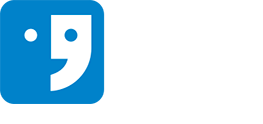Headway and Epilepsy Ireland announce #iseebeyond campaign
Headway, Brain Injury Services and Support and Epilepsy Ireland have today issued a call for those in the workplace living with a hidden disability to nominate their company in the ‘National Hidden Disability Awards 2017’.
There are an estimated 30,000 people in Ireland living with an acquired brain injury in Ireland and 37,000 living with epilepsy.
A national survey* conducted by Amárach shows that 7 in 10 people would not feel comfortable telling their employer they had a hidden disability and 9 in 10 employees in Ireland show that workplaces lack awareness of hidden disabilities.
“A hidden disability can be easily overlooked. Every day people living with an acquired brain injury face judgement because people can’t see what is going on for them. We want to create a society in which people living with a brain injury feel more understood, included and supported in the workplace. We want to dispel the myth that persons with hidden disabilities like an acquired brain injury or epilepsy are unable or no longer able to contribute in the work place and of course celebrate the companies that have made a positive impact with their employees”. – CEO of Headway, Kieran Loughran
“Epilepsy Ireland’s vision is to achieve a society where no person’s life is limited by the condition. This campaign wants to honour and recognise companies that have played a huge part in believing in their employees.” – CEO of Epilepsy Ireland, Peter Murphy
Well-known radio presenter Rick O’Shea has worked with Epilepsy Ireland for over ten years and was diagnosed with epilepsy at aged 16, also commented:
“I am thrilled to be here today to show my support for the #iseebeyond campaign.
Living with any disability can be difficult, but when the disability is not visible unfortunately stigma can be attached.
As a society we need to stop and think for a minute before assuming anyone’s
circumstance. Headway and Epilepsy Ireland are doing a fantastic job of highlighting hidden disabilities and today are encouraging employees to nominate their company in the ‘National Hidden Disability Awards 2017.
I would urge people to start talking about this important topic. And always remember never judge a book by its cover”.
#iseebeyond is supported by six videos which tell a short story of people that live and work with a hidden disability. The videos promote a positive message towards people living with a hidden disability in the workplace.
If your employer is hidden disability friendly please nominate them here.. Examples of good practice in supporting employees with hidden disabilities include:
- Fully understanding the disability
- Discussing the full implications of the disability
- Investigating the supports that may be needed
- Implementing necessary changes to ensure safety
- Arranging for co-workers to be trained/ informed to support the employee
- Making allowances for medical appointments
- Providing accessible technologies at work
- Ensuring that company policies are inclusive and accessible
Find us on Facebook, Twitter and Instagram.
*Survey was conducted by Amárach Research from 7-11 December 2015 across a total of 1,000 participants in Ireland. It included quotas set on gender, age, social class and region to achieve a sample aligned with national population.
For further information or to request an interview, please contact Elizabeth Fearns from Prior Communications:
Email: Elizabeth.fearns@priorcommunications.ie
Phone: 01-5240236
About Headway
Headway is a not-for-profit organisation, which provides support and services to individuals affected by Acquired Brain Injury (A.B.I). Founded in 1985, Headway strives to heighten public and political awareness of Acquired Brain Injury and the impact it has on individuals, families and carers. Headway’s mission is “Bringing positive change in the lives of those affected by Acquired Brain Injury”.
About Epilepsy Ireland
Epilepsy Ireland is the national organisation supporting and representing people with epilepsy, their families and carers. Established in 1966, the charity provides a wide range of support and information services from head office in Dublin and from nine locations around the country. The charity also provides training programmes for both health professionals and for young adults with epilepsy; actively works to improve public understanding of epilepsy and funds high quality Irish research into the condition.
See www.epilepsy.ie




